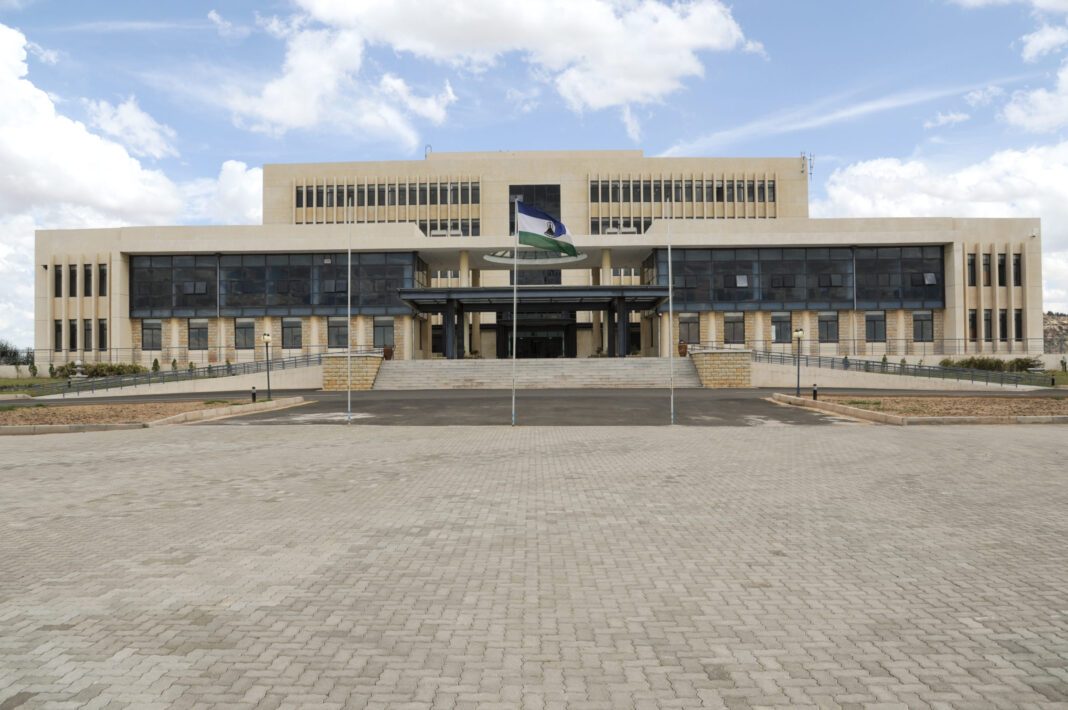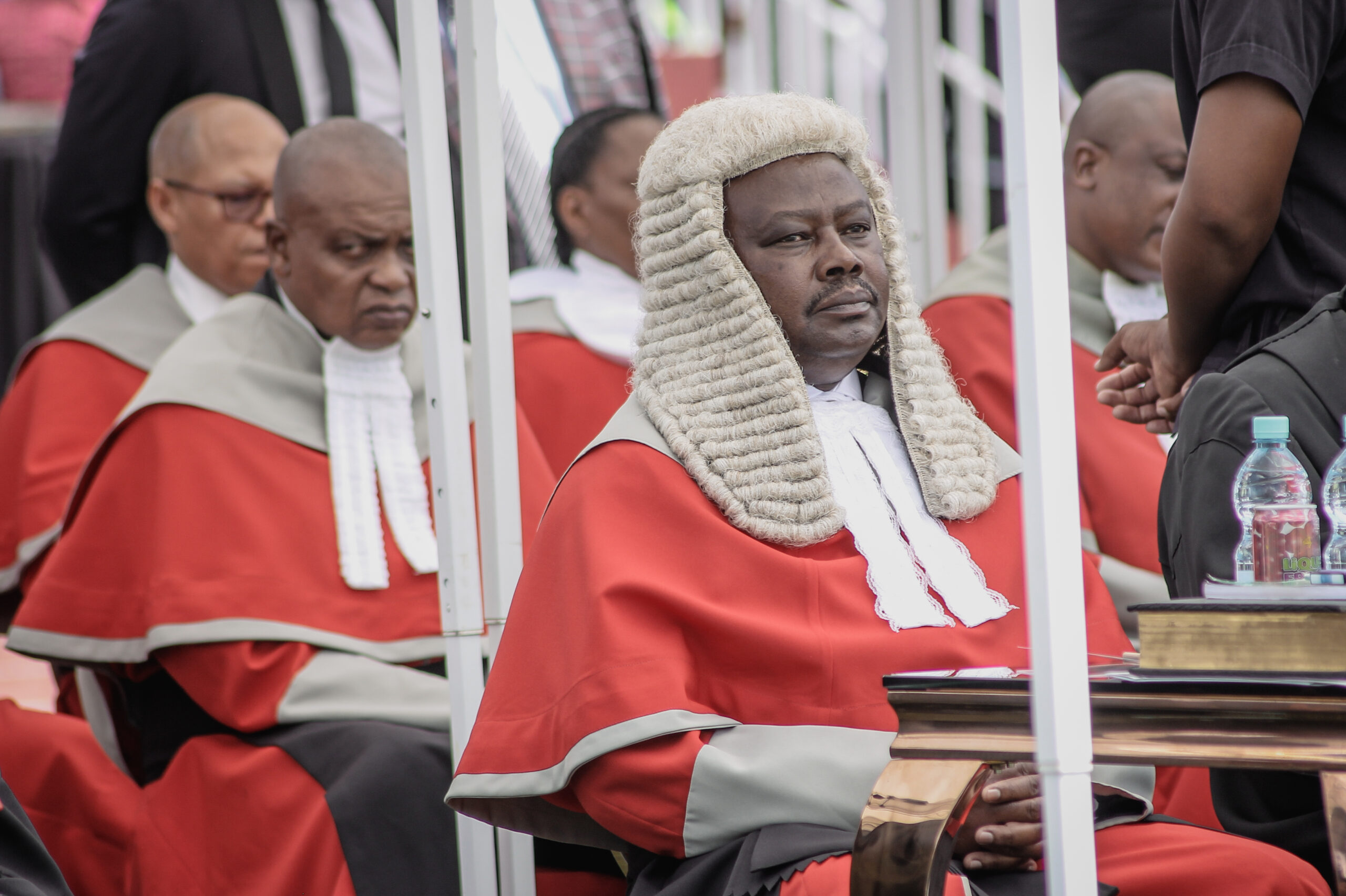…as members of dissolved parliament ‘posthumously’ meet for consensus building
Mohloai Mpesi
An attempt to build consensus among members of the dissolved 10th Parliament of yesteryear in case the desperate move to revive it goes through was staged by the Lesotho Council of Non-Governmental Organisations in Maseru this week.
The 10th Parliament was dissolved before it could complete its assignment chief of which was promulgating the 11th Amendment to the Constitution Bill entailing the basis of the National Reforms.
The three-day workshop sought to bring the erstwhile legislators from the two houses of Parliament – National Assembly and Senate under one roof to find a common consensus towards details contained in the Omnibus Bill should the move for parliament recalling succeed.
The Executive Director of LCN Seabata Motsamai unveiled in his opening remarks that they arranged the meeting to have the former MPs (Members of Parliament) find a way around the Bill and how it would be passed into in order to include the views of Basotho.
“We must peruse the Bill in order to form opinions around it so that if we say we are in a ‘State of Emergency’ we are well aware that devastating incidents that prompted the reforms process will come back again in the near future should the bill fail to pass.
“We are here to build consensus on the Omnibus Bill where the Senate, National Assembly and government will look and assess the areas of agreement or disagreement so that if any opinion of recalling or not recalling is successful it is derived from the consensus.
“It is our hope that this meeting will come up with solutions that will help this country to salvation,†he said.
The move to pass the reforms was futile three weeks ago when parliament was dissolved following a Legal Notice issued by the King Letsie III.
The two-houses demonstrated antagonistic disagreements on a number of clauses entailed in the Omnibus Bill.
Motsamai’s words fell in line with European Union representative David Healy who held confidence that the reforms will still be adopted, saying that failure to complete the reforms has frustrated the expectations of Basotho and all interested in seeing a better Lesotho.
“Less than three weeks ago, the completion of the reform process was tantalisingly close. Despite all the obstacles that had been faced, including the reform process coinciding with the Covid-19 pandemic, we were still hopeful, until almost the very last moment, that the reforms were about to be adopted. Yet, experience had taught us to fear that the process could still possibly fail at the very last moment. Unfortunately, we were right to have such fears.
“Basotho need to look forward with hope towards a brighter future and despite everything Basotho still retain hope in this process. They need to feel that there is a brighter future ahead and these reforms should be a part of that brighter future,†he said urging all stakeholders to continue to act in good faith and not and ignore their personal interests.
“At this moment in time the greater good is what is required,†he said.
“We remain incredibly close to agreement and with a little more work and goodwill from all sides it should still be possible to find a solution. However, as always in this type of negotiation some compromises will be necessary. We still hope that the Honourable Members of the National Assembly and the Honourable Senators can manage to rise to the challenge and manage to complete the reforms.
“We urge you to remain committed and to bridge any differences that may exist and to respect the voice of your citizens. We remain convinced that the reform process is still the best way forward. The reforms process may be a once in a lifetime opportunity. It should not be squandered,†he said.
“Of course, the EU and the rest of the international community have been heavily involved in this process and at this moment I would like to take a moment to acknowledge the unstinting work of Justice Moseneke,†he continued.
He said initiatives and arrangements to progress the reforms have to have national ownership and be endorsed by national stakeholders as the process cannot be imposed from foreign stakeholders.
“However, the international community has prodded various stakeholders to resolve their differences of opinion. As this is a Basotho led process the EU is not applying pressure to the stakeholders involved. We only offer our assistance in trying to resolve this quagmire.
“As a demonstration of the EU’s commitment, the EU has already invested approximately M50 million in this process. However, just as important as the financial investment of the international community has been, the investment of time by the international community.
“Deliver these reforms so that Lesotho can secure the peace and stability that your people deserve and need so that you create an enabling environment for a prosperous Lesotho. There is no plan B. The only way to move forward is to pass these reforms,†he said.
The same sentiments were echoed by the United Nations Resident Coordinator Amanda Mukwashi who said that the reforms would help to bring peace and stability in the country.
“It has been a difficult few weeks since dissolution of parliament. I am grateful that you are here together to find common ground to go forward,†Mukwashi said adding that the MPs are holding the dreams of Basotho.
“The reforms should be perceived as a lighthouse for all to see. It occurs to me that the leadership of this nation is holding an extremely precious and sensitive thing in their hands.
“Look again whether the proposals contained in the Bill represent the voices and desires of Basotho. Please don’t run halfway, finish the good work that you started,†she advised, adding “let us not be discouraged in doing this for in due course we will reap a harvest. Don’t get out of the race when you are 5meters to go, don’t give up on the eleventh hour. Our journey to complete the national reforms has indeed faced complex and interconnected challengesâ€.
However, the Leader of Opposition to the dissolved parliament Monyane Moleleki, would have none of that as pointed out that recalling parliament would be acting against the legal provisions of the constitution which was substantiated by His Majesty King Letsie III.
“The previous speakers have made use of the word “predicamentâ€. The country of Lesotho is currently finding itself constitutionally in a predicament. There are those even urging us to consider being in an emergency, while there is actually no state of emergency subsisting in Lesotho today, it’s just a predicament,†he said.
He narrated that in the last couple of days, something also unusual happened in which the leadership of the Civil-Society invited the leaders of all parties in the last dissolved parliament to come together to embark upon the unusual journey of initiating the process of recalling the dissolved parliament.
Moleleki furnished urged the international community to do the undoable, unthinkable in agreeing by consensus to the event of recalling the dissolved parliament while doing it with a smile pretending that they are happy because technically speaking there is no state of emergency which is the only situation that prescribes the recalling of a dissolved parliament.
“Constitutionally that is undoable now, we are already in the campaign mode and we should go through with it,†he said.
He said he would suggest that instead of passing the reforms, they would rather pass the eleventh amendment constitution and other attended issues around the Omnibus Bill because the process of passing reforms would not happen overnight.
“We will not wake up and pass the reforms, it is a process, it follows 56 years of independence from the British during which we traversed a journey flawed with a lot of pitfalls.
“Let’s be patient, move cautiously even in our haste speed we should do the right thing, do it in such a way that we don’t fall in the same pitfalls in our haste and hurry. So let us pass the Omnibus Bill, enact the Bill but go carefully, deliberately, and cautiously about the actual process of reforms themselves.
“There are those, among us, myself included, who think the Omnibus Bill should not pass now, it could be done by the new government which will be elected in eight weeks or so. So one wonders what the hurry is all about,†he said.
Summary
- The Executive Director of LCN Seabata Motsamai unveiled in his opening remarks that they arranged the meeting to have the former MPs (Members of Parliament) find a way around the Bill and how it would be passed into in order to include the views of Basotho.
- “We must peruse the Bill in order to form opinions around it so that if we say we are in a ‘State of Emergency’ we are well aware that devastating incidents that prompted the reforms process will come back again in the near future should the bill fail to pass.
- “We are here to build consensus on the Omnibus Bill where the Senate, National Assembly and government will look and assess the areas of agreement or disagreement so that if any opinion of recalling or not recalling is successful it is derived from the consensus.

Your Trusted Source for News and Insights in Lesotho!
At Newsday Media, we are passionate about delivering accurate, timely, and engaging news and multimedia content to our diverse audience. Founded with the vision of revolutionizing the media landscape in Lesotho, we have grown into a leading hybrid media company that blends traditional journalism with innovative digital platforms.










